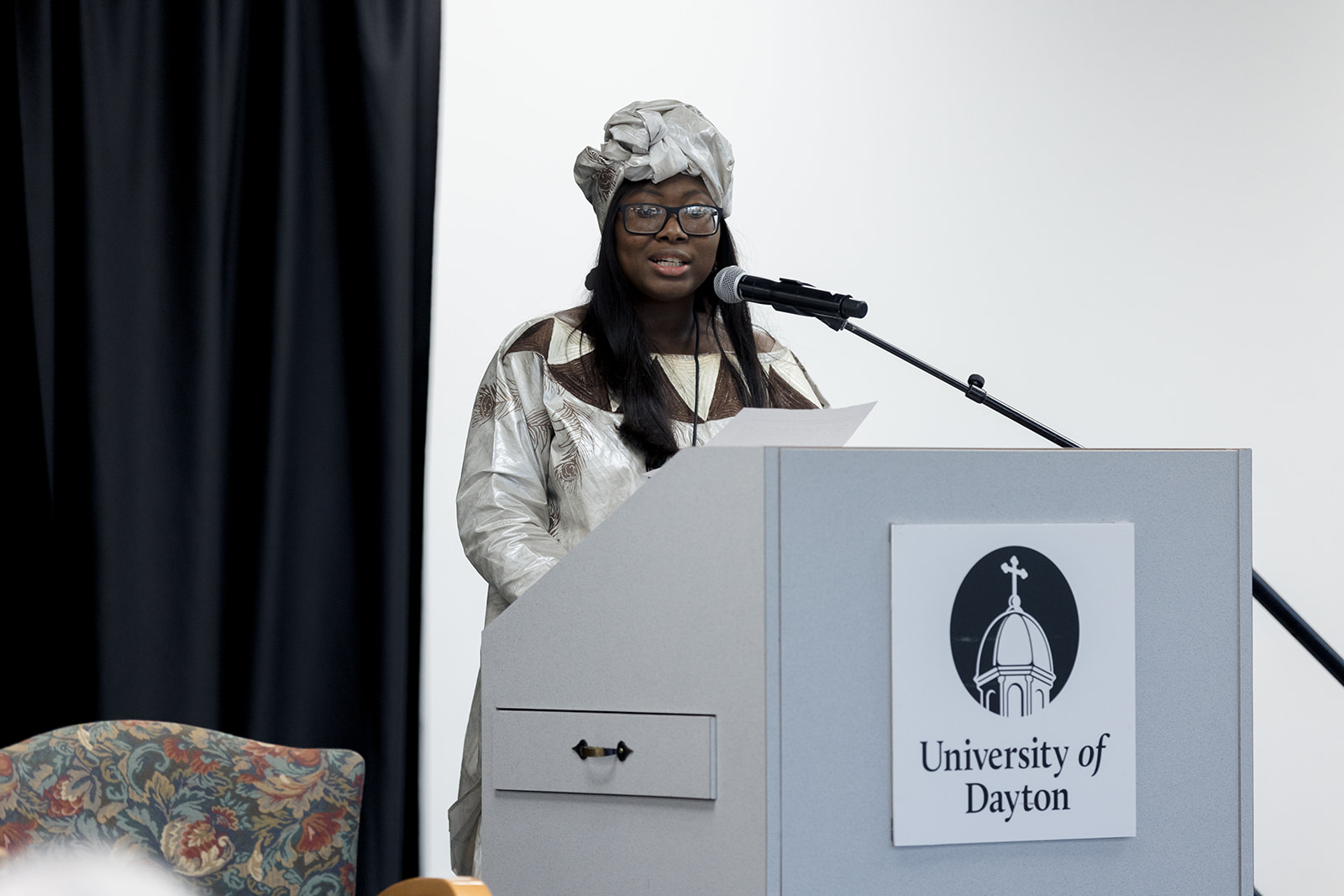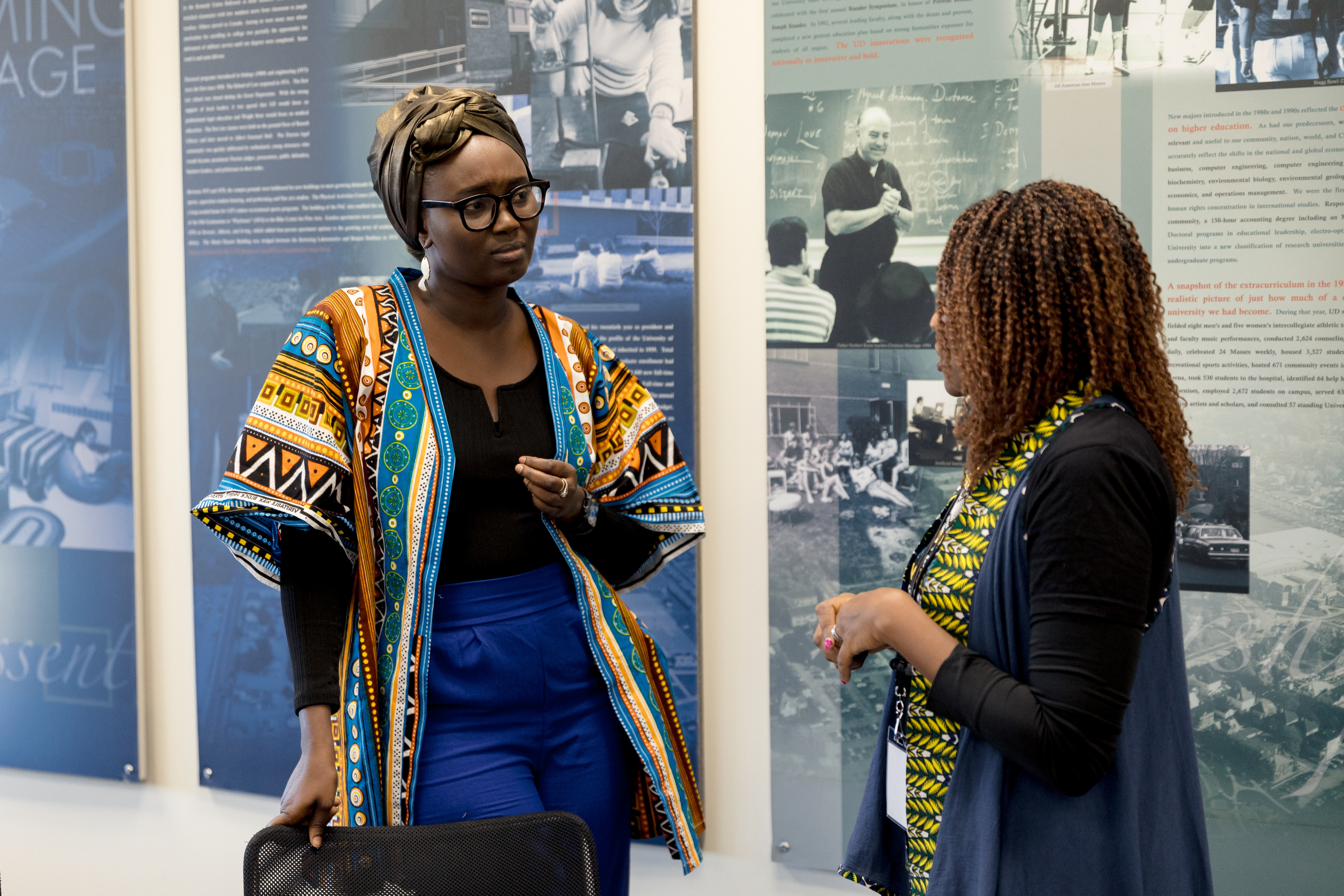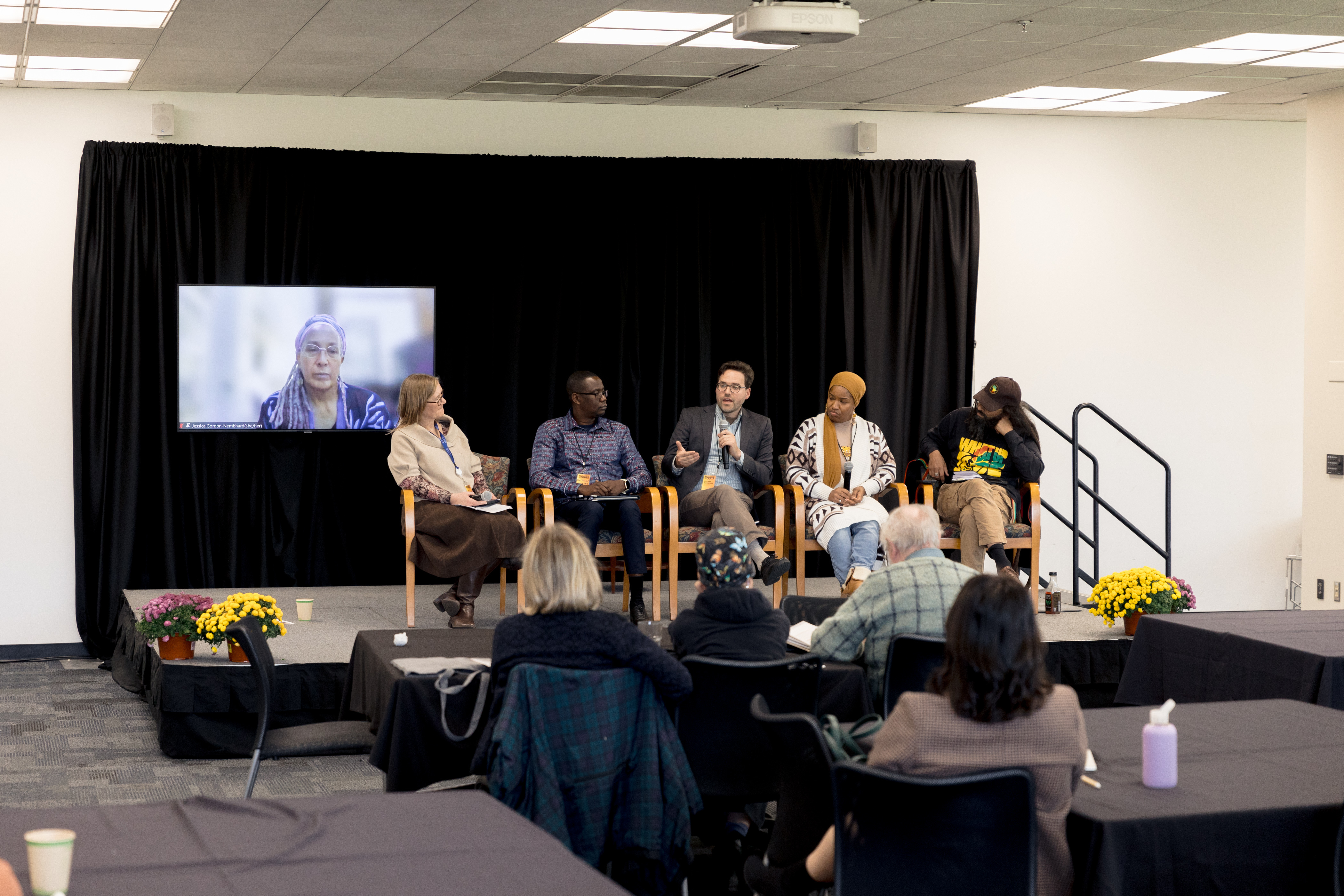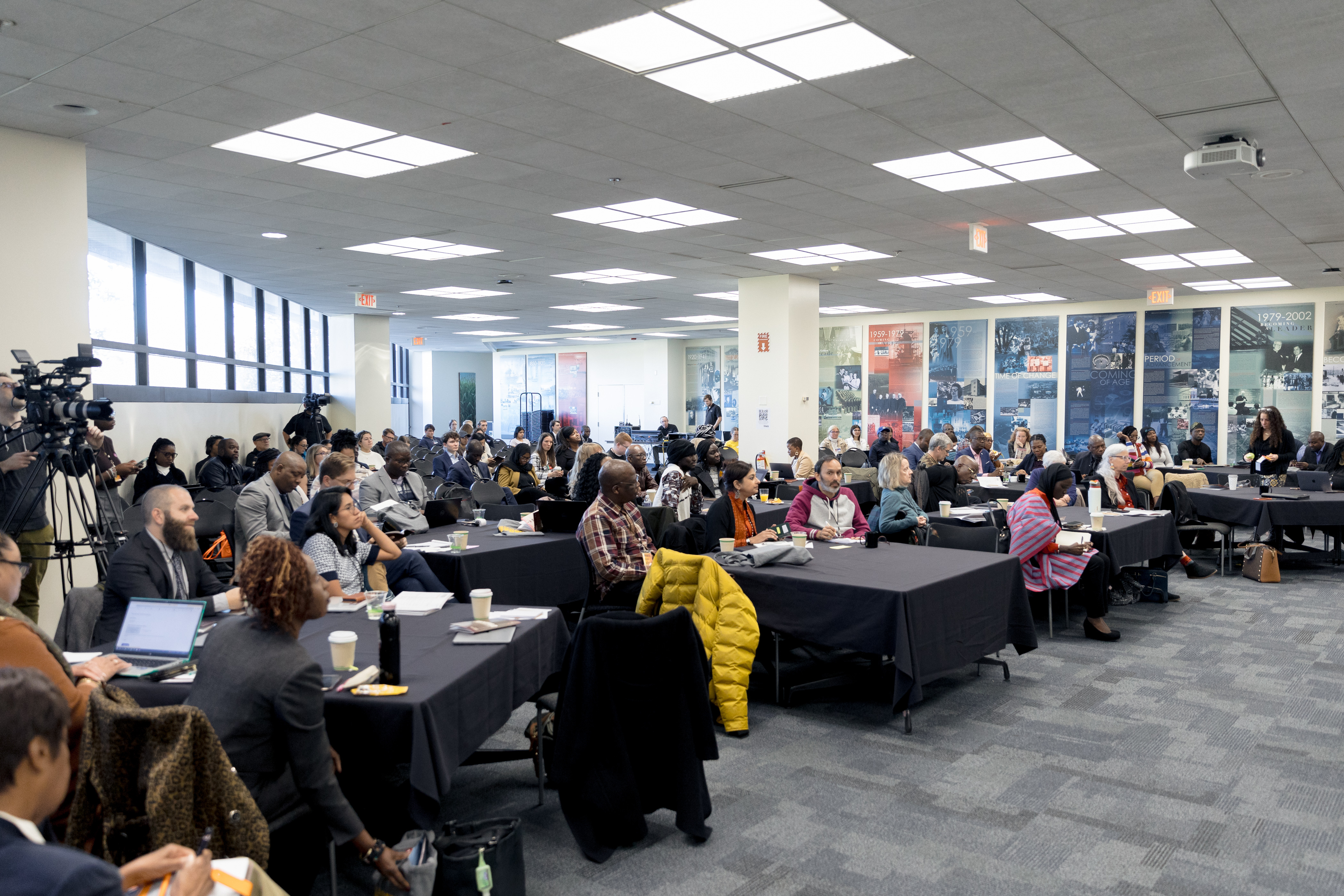Let's Talk Human Rights

Reclaiming Power: Insights from SPHR 2023 (Part 1)
By Satang Nabaneh
In November 2023, we gathered for the 2023 Social Practice of Human Rights, co-convening with the International Conference on the Right to Development, focused on the theme – “Decolonization and Development for Africa and People of African Descent.” This SPHR23 blog series captures the discussions and shares the learning that occurred during the conference around the themes of (1) the right to development; (2) building social movements; (3) just energy transitions; and (4) identity and belonging — as applied to Africa and the people of African descent.
Setting the Scene
This year marks the 75th anniversary of the Universal Declaration of Human Rights (UDHR). The UDHR laid the foundation for many treaties that govern international human rights law today, including the International Covenant on Civil and Political Rights (ICCPR), the International Covenant on Economic Social and Cultural Rights (ICESCR) and on a continental level, the African Charter on Human and Peoples’ Rights (ACHPR) and its subsequent treaties, including the Protocol to the African Charter on Human and Peoples’ Rights on the Rights of Women in Africa (Maputo Protocol). This year also marked the 10th anniversary of our first SPHR, which allows us to pause and consider the modest but crucial role this convening plays in nourishing ideas, methodologies, and partnerships that advance human dignity. For SPHR23, it served as an avenue to actively work towards creating an anti-racist, anti-privilege, and decolonizing practice of human rights.
As a result, we aligned our efforts with key partners in Africa to enable us to realize this commitment fully. For the first time, the Center for Human Rights partnered with the University of Pretoria and the University of the Free State in South Africa to co-convene the 6th Biennial SPHR and the 6th International Conference on the Right to Development. This enabled the Africa-based human rights ecosystem to convene with U.S.-based scholars, policy designers and practitioners who are focused on the continent and the growing discourse on decolonization and international attention on the rights of people of African descent.

Lived Experiences and Realities
The significance of this discourse and space on the global rights agenda for Africa and people of African descent cannot be overstated. Africa, a continent teeming with potential, remains one of the world's poorest regions. Shockingly, one-third of its population grapples with undernourishment, while millions lack access to basic necessities such as clean water, electricity, education, healthcare, and infrastructure. Many African nations languish at the bottom of significant development indices, depicting ongoing disparities. But, Africa continues to push against the narrative of the image of the victim, demanding power in decision-making spaces and reimagining the development narrative for the continent.
Africa’s population is the youngest in the world and growing. According to a recent New York Times article, The World is Becoming More Africa, by 2050, one in four people on the planet will be African. This era is not only transforming many African countries but also radically reshaping their relationship with the rest of the world.
Colonialism, slavery, and imperialism have deeply impacted Africa and its diaspora. Communities of African descent across the globe live under structural discrimination and bear the scars of poverty, underdevelopment, social exclusion, and economic disparities. These historical processes have influenced how Africa and its people are perceived and positioned within racialized, capitalistic systems and structures.

Challenging futures
Human rights is a framework for action, a culture of understanding, and a tool to help people secure justice and dignity for all. Despite its potential to liberate, the human rights framework remains constrained by a Eurocentric epistemic bias that privileges Western knowledge. In order to meet the current attacks on human rights, we must be critical of human rights to make it more inclusive, diverse, and equitable.
In this moment, attacks on specific human rights and the notion of human rights itself are more common than ever, making the active protection of human rights essential. The promise of the UDHR, of dignity and equality in rights for all, has been assaulted recently. Particularly, given the rise of authoritarian governance and revitalization of white supremacy, xenophobia and extreme nationalism are undergird by the increase of fake news and anti-rights alliances. This is further exacerbated by rising corporate power, leading to corporate capture of the state or manipulation of the political process for economic benefits.
Climate change is one of the greatest challenges that humanity has faced in recent times. The growing impact of the climate crisis and the destruction of critical ecosystems on human rights and the future of humankind is quite evident. The growing grip of technological development and surveillance capitalism on our lives opens new threats to privacy and creates opportunities for vigilance and social control.

So what is the way forward, we ask ourselves?
In today's world, we witness diverse expressions of human rights advocacy across the globe. People everywhere stand up, defending their rights in unique and powerful ways. Individuals worldwide have united to demand essential social, cultural, and economic rights. They've protested for access to health, education, housing, employment, and social security and rejected austerity measures during this socio-economic crisis.
One fundamental philosophical foundation for human rights in Africa draws heavily from our communitarian ethic, exemplified by the concept of 'ubuntu.' 'Ubuntu' is a Bantu term and encapsulates the idea of "humanity to others." Ubuntu underscores the profound interconnectedness of all individuals and emphasizes the shared responsibility for the well-being and dignity of one another. It embodies a spirit of mutual respect, compassion, and cooperation that resonates deeply in African philosophy and underpins the quest for human rights for Africa and its diaspora.
We remain inspired by various movements, including anti-racist, women's, indigenous, and environmentalist initiatives, that are not only striving to deepen existing human rights but also forging new paths toward racial, social, gender, and environmental justice. These movements are interconnected, forming intersectional approaches and unified demands. Audre Lorde, the American writer and intersectional feminist, reminds us that we do not live single-issue lives. Our identities, our birthplaces, and our daily experiences are deeply intertwined. This interconnectedness necessitates a holistic approach to addressing the multifaceted challenges we face. We must build communities of struggle that advocate for economic, racial, and gender justice, recognizing that these issues are inextricably linked.
The emergence of new generations of activists and organizations brings innovative methods of organizing, campaigning, and advocacy to the forefront. Technology has enabled global solidarity, uniting people in shared struggles across borders. The significance of human rights should resonate directly with the everyday experiences of individuals in their communities. It should give shape and substance to their demands, equipping them with the means to hold others accountable, seek remedies, and uphold their dignity. A praxis-based approach recognizes the interconnectedness of theory and practice and values the voices and agency of local communities. Our conference proceedings remain committed to such action-based research methods, and our time in November allowed us to further articulate and grapple with the meaning, value and impact of the “social practice of human rights”.
Satang Nabaneh is Research Professor of Law at the University of Dayton School of Law and the Human Rights Center’s Director of Programs.
SPHR 2023 Highlights
Decolonization and Development for Africa and People of African Descent
Explore the three day conference held in November 2-4.
SPHR 2023 Highlights
Explore the three day conference held in November 2-4.
Decolonization and Development for Africa and People of African Descent
